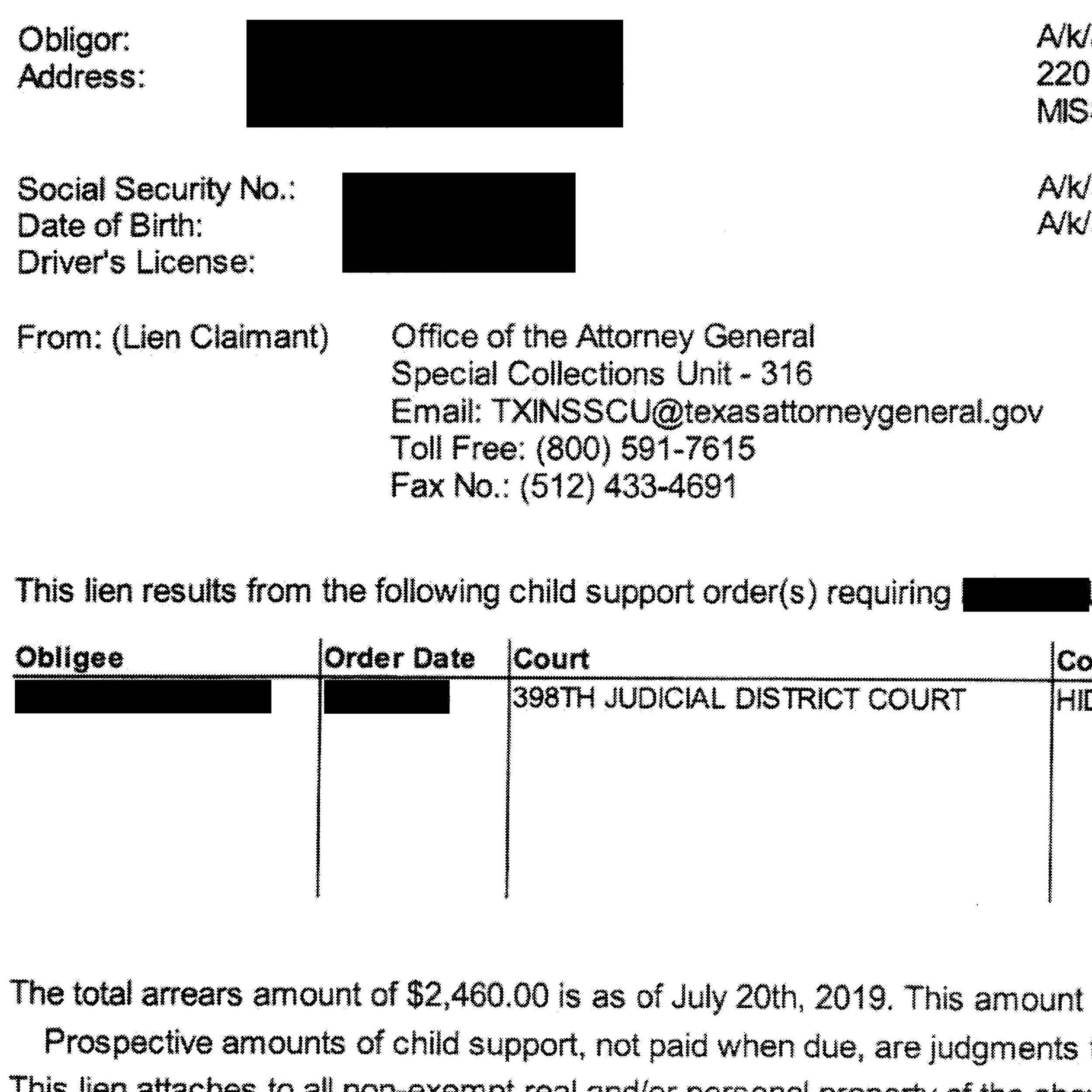Child Support Liens and Their Effect on Texas Injury Claims
Texas law requires parents who owe delinquent child support to pay it or face various enforcement measures. The Texas legislature created Chapter 157 of the Family Code to outline those measures. Placing a lien on a person’s property is one method to collect past-due child support.
What is Child Support?
In Texas, child support is money that one parent pays to help the other parent with childcare and other household expenses. The parent required to pay child support is “the obligor,” and the parent who receives child support is “the obligee.” Although Texas courts could order either or both parents to pay child support, the obligee usually is the person who has primary possession of the child (i.e., the parent with whom the child lives most of the time), and the other parent is the obligor.
What Happens if an Obligor Does Not Pay As Ordered?
If an obligor fails to pay court-ordered child support, the obligee and the Texas Attorney General’s Office have several options to force the obligor to pay. These enforcement options include:
Filing a lawsuit against the obligor and asking the court to enforce the order;
Requiring employers to withhold child support from the obligor’s paycheck;
Intercepting federal income tax refund checks or other money due from state or federal sources (e.g., lottery winnings);
Suspending the obligor’s driver’s, professional, or hunting and fishing licenses; and
Filing a lien against the obligor’s property.
What is a Child Support Lien and How Does It Affect My Injury Case?
If an obligor is in arrears, the obligee or the Attorney General’s Office may file a lien against the obligor’s property. A child support lien attaches to the obligor’s non-exempt real and personal property, including settlements for compensation due to or owned by the obligor. Thus, a child support lien attaches to the obligor’s net proceeds of an insurance settlement or verdict for personal injuries. More importantly, a child support lien grants the obligee the right to recover unpaid child support before the obligor may receive compensation for his or her injuries.
A child support lien is valid until the obligor pays all current and past-due child support, interest, and any costs and attorney’s fees for which the obligor is responsible. However, the obligee or the Attorney General’s Office may waive a child support lien partially to allow the obligor to receive a portion of the proceeds. This partial waiver often occurs when the lien’s value exceeds the funds available to the obligor after attorney’s fees and medical expenses. A negotiated lien only reduces the obligor’s outstanding child support balance; it does not entirely waive the arrearages. Thus, the obligor would owe the remainder of past-due child support even after settling an insurance claim.
Call an Experienced Injury Lawyer After an Accident If You Have a Child Support Lien
While a child support lien may affect an obligor’s net recovery, it does not prohibit an obligor from filing a claim or lawsuit against an at-fault driver. An experienced injury lawyer may be able to negotiate a child support lien so a victim with past-due child support could receive compensation following a car crash or other accident. If a negligent driver has injured you, you have enough things to worry about. Do not let dealing with the insurance company and the Attorney General’s Office be some of them. We deal with them so you can focus on getting your life back to normal. You have one chance to do this; make the right choice by choosing the right attorney. Call us at (956) 291-7870 or email us at contact@rdjlawyer.com for a free consultation and case evaluation.

